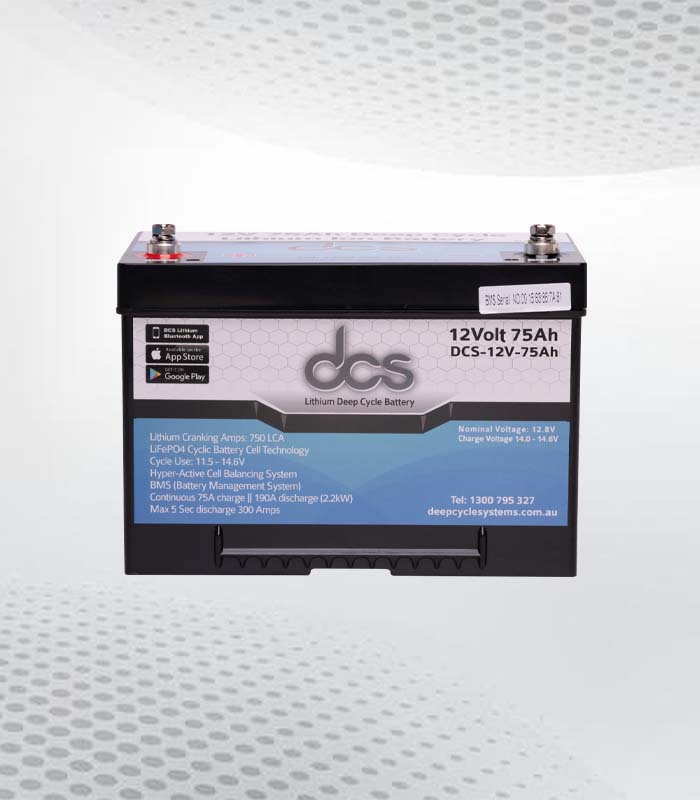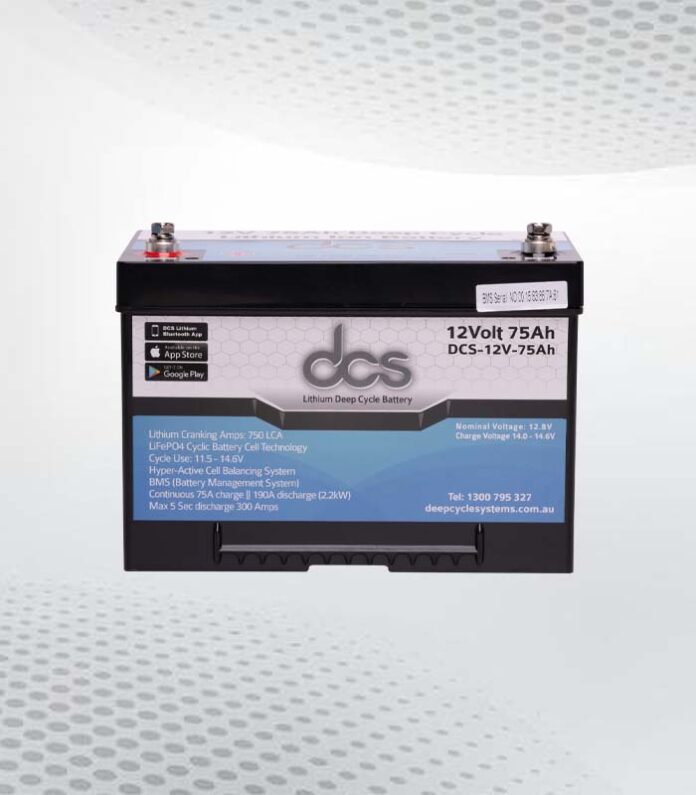Renewable energy systems are becoming increasingly popular as people strive to reduce their carbon footprint and become more self-reliant in terms of power generation. One crucial component of any renewable energy system is the battery, which stores the excess energy produced for later use. Among the various options available, 48v Lifepo4 batteries have gained significant attention due to their numerous advantages.
Advantages Of 48-Volt Lifepo4 Batteries For Renewable Energy Systems
48-v Lifepo4 batteries offer several advantages over other battery types when it comes to renewable energy systems. One of the key benefits is their high energy density, which means they can store a larger amount of energy in a smaller space. That is particularly important for residential installations where space is often limited. Additionally, 48-v Lifepo4 batteries have a longer cycle life compared to other battery chemistries, meaning they can be charged and discharged more times before their performance starts to degrade.
Another advantage of 48-v Lifepo4 batteries is their superior safety features. LiFePO4 batteries are inherently more stable than other lithium-ion chemistries, reducing the risk of thermal runaway or fire. They also have a wider operating temperature range, making them suitable for extreme climates. Furthermore, 48-v Lifepo4 batteries are more environmentally friendly as they do not contain toxic heavy metals like lead-acid batteries, making them easier to recycle.
Factors To Consider When Choosing A 48v Lifepo4 Battery
Choosing the right 48v Lifepo4 Battery for your renewable energy system requires careful consideration of several factors. The first factor to consider is the battery capacity, which determines how much energy the battery can store. You need to assess your energy requirements and choose a battery with sufficient capacity to meet your needs. Keep in mind that it’s better to have slightly more capacity than you currently require to allow for future expansion or unexpected increases in energy consumption.
Another important factor is the battery’s lifespan and cycle life. The lifespan refers to the total duration for which the battery can be used before it needs replacement. On the other hand, the cycle life refers to the number of charge and discharge cycles the battery can undergo before its performance deteriorates significantly. It’s crucial to choose a battery with a long lifespan and a high number of cycles to ensure it will last for the desired duration and provide reliable performance.
Understanding Battery Capacity And Energy Density
Battery capacity and energy density are two essential factors to consider when choosing a 48-v Lifepo4 battery for your renewable energy system. Battery capacity refers to the amount of energy a battery can store, usually measured in ampere-hours (Ah). The higher the capacity, the more energy the battery can hold. When determining your energy requirements, it’s essential to account for both your peak energy usage and your average daily energy consumption to ensure the battery can meet your needs.
Energy density, on the other hand, refers to the amount of energy that can be stored per unit of battery volume or weight. A battery with higher energy density can store more energy in a smaller package. That is particularly important for renewable energy systems where space is often limited. By choosing a battery with high energy density, you can maximize the amount of energy stored while minimizing the physical footprint of the battery.
It’s important to strike the right balance between battery capacity and energy density based on your specific requirements. If you have ample space available, you may opt for a battery with higher capacity, even if it has slightly lower energy density. Conversely, if space is a constraint, you might prioritize a battery with higher energy density, even if it means sacrificing some capacity.
Evaluating Battery Lifespan And Cycle Life
Battery lifespan and cycle life are critical factors to consider when choosing a 48-v Lifepo4 battery for your renewable energy system. The lifespan of a battery refers to the total duration for which it can be used before it needs replacement. Different batteries have varying lifespans depending on their chemistry and construction. It’s crucial to choose a battery with a lifespan that aligns with your long-term goals and expectations.
Cycle life, on the other hand, refers to the number of charge and discharge cycles a battery can undergo before its performance starts to deteriorate significantly. Each cycle involves charging the battery to its full capacity and then discharging it to a specific level. The more cycles a battery can endure without significant degradation, the longer it will last and the more reliable it will be over time.
When evaluating the lifespan and cycle life of a 48-v Lifepo4 battery, it’s essential to consider your specific usage patterns. If you have a high energy demand and frequently discharge the battery, you will need a battery with a higher cycle life. On the other hand, if your energy consumption is more stable and you discharge the battery less frequently, you may prioritize a longer lifespan over a high cycle life.
Safety Considerations For 48-Volt Lifepo4 Batteries
Safety is a crucial aspect to consider when choosing a 48-v Lifepo4 battery for your renewable energy system. LiFePO4 batteries are inherently safer than other lithium-ion chemistries due to their stable chemical composition. Unlike other lithium-ion batteries, LiFePO4 batteries are less prone to thermal runaway or fire, reducing the risk of accidents and improving overall safety.
Additionally, LiFePO4 batteries have a wider operating temperature range compared to other battery chemistries. They can withstand extreme temperatures, both high and low, without compromising their performance or safety. That makes them suitable for installations in regions with harsh climates, where temperature fluctuations can be significant.
When selecting a 48-v Lifepo4 battery, it’s important to ensure that it complies with relevant safety standards and certifications. Look for batteries that have been tested and certified by recognized organizations to ensure they meet the necessary safety requirements. That will give you peace of mind knowing that the battery you choose has undergone rigorous testing and meets the highest safety standards.
Comparing Different Models Of 48-Volt Lifepo4 Batteries
With the growing popularity of renewable energy systems, there is an increasing number of manufacturers offering 48-v Lifepo4 batteries. When choosing the right battery for your specific needs, it’s important to compare different models and brands to find the one that best meets your requirements. Here are some key factors to consider when comparing different models of 48-v Lifepo4 batteries:
Capacity: Compare the capacity of different batteries to ensure they can meet your energy requirements. Look for batteries with a higher capacity if you have a higher energy demand.
Energy density: Evaluate the energy density of different batteries to determine their physical footprint. Opt for batteries with higher energy density if space is a constraint.
Lifespan and cycle life: Assess the lifespan and cycle life of different batteries to ensure they align with your long-term goals and usage patterns. Choose batteries with a long lifespan and a high number of cycles for maximum reliability.
Safety features: Consider the safety features of different batteries, such as thermal runaway protection and wide operating temperature range. Look for batteries that comply with relevant safety standards and certifications.
Price and warranty: Compare the price and warranty options of different batteries to find the best value for your investment. Consider the overall cost of ownership, including the initial purchase price and any additional maintenance or replacement costs.
By carefully evaluating these factors and comparing different models of 48-v Lifepo4 batteries, you can make an informed decision and choose the battery that best suits your specific needs and budget.
Installation And Maintenance Tips For 48-Volt Lifepo4 Batteries
Proper installation and maintenance are crucial for ensuring the optimal performance and longevity of your 48-v Lifepo4 battery. Here are some tips to keep in mind:
Installation: Follow the manufacturer’s installation guidelines and recommendations to ensure proper wiring and connections. Make sure the battery is installed in a well-ventilated area to prevent overheating.
Charging: Use a compatible charger specifically designed for LiFePO4 batteries. Avoid overcharging or undercharging the battery, as that can affect its performance and lifespan. Follow the recommended charging voltage and current for optimal results.
Temperature control: Monitor the temperature of the battery during operation and ensure it stays within the specified operating temperature range. Extreme temperatures can affect the performance and lifespan of the battery.
Regular maintenance: Perform regular maintenance checks to ensure the battery is functioning properly. Inspect the battery for any signs of damage or wear and tear. Clean the terminals and connections to maintain good conductivity.
Safety precautions: Take necessary safety precautions when handling the battery, such as wearing protective gloves and goggles. Follow proper disposal procedures for old or damaged batteries to minimize environmental impact.
By following these installation and maintenance tips, you can maximize the performance and lifespan of your 48-v Lifepo4 battery and ensure the smooth operation of your renewable energy system.
Pricing And Warranty Options For 48-Volt Lifepo4 Batteries
When choosing a 48-v Lifepo4 battery for your renewable energy system, it’s important to consider the pricing and warranty options. While the initial purchase price is a significant factor, it’s also essential to evaluate the overall cost of ownership, including any additional maintenance or replacement costs.
Compare the prices of different batteries and consider the features and specifications they offer. Opt for a battery that provides the best value for your investment in terms of capacity, energy density, lifespan, cycle life, and safety features. Keep in mind that cheaper batteries may not always offer the same level of performance and reliability as more expensive ones.
In addition to pricing, consider the warranty options provided by different manufacturers. A longer warranty period indicates the manufacturer’s confidence in the quality and durability of their battery. Look for warranties that cover both manufacturing defects and performance degradation over time. It’s also important to understand the warranty terms and any conditions or limitations that may apply.
By carefully evaluating the pricing and warranty options, you can make a well-informed decision and choose a 48-v Lifepo4 battery that offers the best combination of performance, reliability, and value for your renewable energy system.
 FAQs
FAQs
Q: Can I mix different brands of 48-v Lifepo4 batteries in my renewable energy system?
A: It’s generally not recommended to mix different brands or models of batteries in the same system. Mixing batteries with different capacities, chemistries, or performance characteristics can lead to imbalances in the system, affecting the overall performance and lifespan of the batteries.
Q: How often should I perform maintenance on my 48-v Lifepo4 battery?
A: Regular maintenance is essential to ensure the optimal performance and longevity of your 48-v Lifepo4 battery. Perform visual inspections regularly to check for any signs of damage or wear and tear. Clean the terminals and connections to maintain good conductivity. It’s also recommended to have the battery professionally tested and serviced at least once a year.
Q: Can I use a 48-v Lifepo4 battery in conjunction with a solar panel system?
A: Yes, 48-v Lifepo4 batteries are commonly used in conjunction with solar panel systems to store the excess energy produced during the day for use during the night or when the sun is not shining. They provide a reliable and efficient storage solution for renewable energy systems.
Conclusion
Choosing the right 48-v Lifepo4 battery for your renewable energy system is crucial for maximizing performance, reliability, and overall value. By considering factors such as battery capacity, energy density, lifespan, cycle life, safety features, and pricing, you can make an informed decision that meets your specific needs and budget. Proper installation, maintenance, and adherence to safety precautions are essential for ensuring the optimal performance and longevity of your battery.
This Article Was First Published On
Choosing The Right 48v Lifepo4 Battery For Your Renewable Energy System



